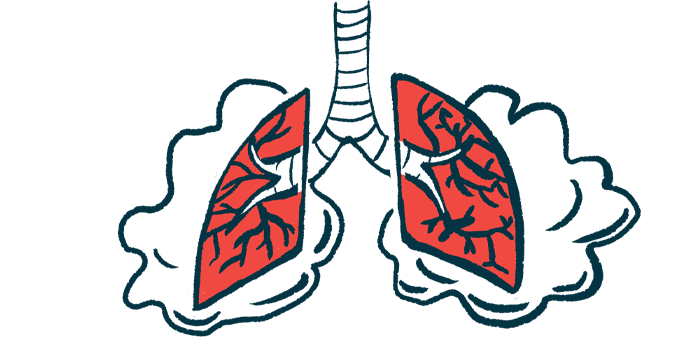LungFit GO’s Inhaled NO Safely Improves Quality of Life: Study
Written by |

LungFit GO, inhaled nitric oxide (NO) that can be self-administered at home, was well tolerated and improved various quality of life measures, according to recent data from a pilot study that evaluated the experimental treatment in adults with or without cystic fibrosis (CF).
The ongoing study involves people with lung infections caused by nontuberculous mycobacteria (NTM), a group of bacteria that are usually not transmitted from person to person, but can infect people with lung conditions, such as CF.
Beyond Air, the therapy’s developer, expects complete safety and efficacy data to be reported later this year.
“The LungFit is an impressive device that may allow for the use of nitric oxide in the home setting for NTM patients,” Rachel Thomson, PhD, professor at the University of Queensland, Australia, said in a press release. “These data provide hope for these severely sick patients with limited therapeutic options, that there can be a therapy with a favorable safety and tolerability profile which will improve quality of life and may have an impact on bacteria.”
The data were presented by Thomson in the poster, “Home-based Intermittent Inhaled High-Dose Nitric Oxide (NO) in Nontuberculous Mycobacterial Pulmonary Disease Using a Novel NO Generator and Delivery System is Safe and Well-Tolerated,” at the American Thoracic Society International Conference 2022, May 13–18.
People with CF or other lung diseases are more susceptible to infections caused by NTM — a group of more than 160 species of bacteria that naturally occur in the environment. While current guidelines recommend combinations of antibiotics to treat NTM, not all are effective or well tolerated.
LungFit GO is an inhaled form of nitric oxide, a compound that widens blood vessels (vasodilator) but also has anti-inflammatory and bacteria-killing properties. Early clinical studies suggest NO may help people with NTM infections.
The 12-week open-label pilot study (NCT04685720) is evaluating LungFit GO in adults, with or without CF, who live with treatment-resistant NTM lung infections.
Participants receive increasing doses of NO — from 150 to 250 parts per million (PPM) — for 40 minutes, four times per day for the first five days while in the hospital to monitor safety,
They then complete the study at home using a new investigational medical device made by Beyond Air. From day six to 14, patients self-administer 250 PPM for 40 minutes, four times per day, then the same dose and time twice daily, from day 15 to week 12. After the treatment period, three follow-up visits will occur up to about 24 weeks.
At the end of the study, final data will assess its effectiveness, including quality of life, physical function, lung function, and sputum bacteria compared to before treatment.
Early interim data reported last year showed none of the eight enrolled participants required dose reductions while at home, and there were no study discontinuations or serious side effects associated with treatment.
As of April 4, 15 individuals have been enrolled, most of whom are women (80%) ranging in age from 22–82 years, a distribution consistent with real-world NTM disease, according to Beyond Air.
While in the hospital, 300 inhalations were administered, showing a mean NO bloodstream level of 3.5 PPM at the end of inhalation, below the safety threshold of 5 PPM. The mean levels of methemoglobin were 4.4%, below the safety threshold of 10%. Methemoglobin is a type of hemoglobin, the protein that carries oxygen throughout the body, that forms in the presence of NO, but cannot carry oxygen.
So far, 2,323 inhalations have been self-administered at home, with no severe treatment-related adverse events (AEs) or discontinuations reported. Treatment compliance was high. There were nine reported AEs, and one serious AE related to treatment.
Interim self-reported quality of life measures showed improvement across various areas among most participants, including NTM and respiratory symptoms, eating problems and digestive symptoms, physical and emotional functioning, and perception of health.
“The LungFit Go pilot study has provided data that opens the door to treating patients suffering from NTM lung infection, as well as other chronic, refractory lung infections, with high concentration NO in the comfort of their own homes or anywhere there is electric power,” Steve Lisi, Beyond Air chairman and CEO, said.
“Most importantly, in addition to the strong safety and tolerability data, patients reported quality-of-life benefits from receiving the home NO treatment in the majority of quality-of-life endpoints, with the most improved benefits being NTM symptoms and digestive symptoms,” Lisi said.
The study was sponsored by Beyond Air with support from the Cystic Fibrosis Foundation.







